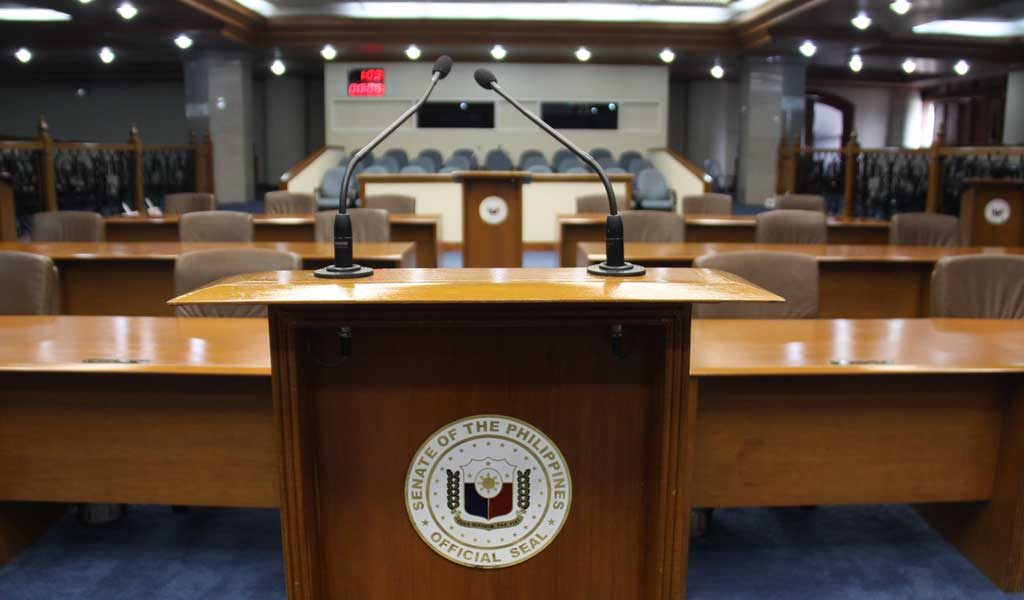Analysts back call to scrap billions of pesos of intel funds

Alyssa Nicole O. Tan, Reporter
THE PHILIPPINE Congress should scrap billions of pesos worth of confidential and intelligence funds of agencies not involved in national security or law enforcement, political analysts said at the weekend, citing tight fiscal space.
“Senator Aquilino Martin D. Pimentel III rightly pointed out that there are agencies which, by virtue of their mandates, aren’t entitled to receive intelligence funds,” Zyza Nadine Suzara, executive director at the Institute for Leadership, Empowerment and Democracy said in a Viber message.
“There also appears to be lack of prudence in terms of the budget levels for the confidential and intelligence funds,” she added, noting that half of the P9.3-billion budget went to the Office of the President.
“What for? Beyond the issue of mandate and purpose, we should consider the fact that the fiscal space is tight.” “Fiscal prudence dictates that the government should have the right priorities as ordinary Filipinos suffer from the effects of the coronavirus and inflation on the economy,” she added.
The Senate on Wednesday realigned more than P170 million worth of agencies’ intelligence funds as it passed its version of 2023 budget bill.
The chamber, which is dominated by allies of President Ferdinand R. Marcos, Jr., did not touch his office’s P4.5-billion intelligence and confidential funds, as well as the P500 million allotted to Vice-President Sara Duterte-Carpio’s office.
“To be clear, these cuts are no more than a quarter measure to appease public sentiment on confidential and intelligence funds,” Terry L. Ridon, a public investment analyst and convenor of think tank InfraWatch PH, said in a Facebook Messenger chat.
“This even puts the Legislature on a slippery slope. If it can cut some portions of the funds in agencies that never had these funds in the first place, what stops them from removing all of it?”
Senator Juan Edgardo M. Angara, who heads the finance committee, earlier defended the president’s intelligence budget, saying many agencies do not share intelligence information.
“Government agencies do not operate in separate silos, and information and data sharing are obligations of agencies to ensure efficient public service,” Mr. Ridon said.
He added that some agencies that were given intelligence budgets never had any need for these funds because their mandate never dealt with state secrets, national security and executive privilege.
A bicameral conference committee composed of representatives from the Senate and House of Representatives met on Friday to thresh out details of the 2023 General Appropriations bill.
The House would probably accept the Senate’s P170-million realignment, Ms. Suzara said.
“This is because Vice-President Sara Duterte gave a political signal to reallocate the confidential funds lodged in the budget of the Education department,” she said. “The House doesn’t stand to lose anything from the reallocation of the funds unlike allocations for parochial and patronage-driven interests.”
Mr. Ridon expects congressmen to take issue with the token reduction of confidential funds of several agencies. “Not because it seeks larger cuts, but more because House leaders might use this matter to curry favor with the president and insist on a full restoration of the confidential budgets,” he said.
Senators slashed P120 million of intelligence funds from the Education department, P20 million from the Office of the Ombudsman, P19.2 million from the Justice department, Senator Juan Edgardo M. Angara told the plenary last week.
They also cut the Foreign Affairs department’s intelligence budget by P5 million, the Social Welfare department by P2 million and other executive offices by P6 million. The amounts were moved to the agencies’ maintenance and operating expenses.
“It would have been best to have converted the entirety of confidential and intelligence funds to specific line items in agencies that truly needed more funding such as social services, housing or education infrastructure,” Mr. Ridon said.
